Bermuda grass vs. Kentucky bluegrass is always an exclusive chat between lawn experts and homeowners. There is always a skeptical argument as to which one is the perfect choice among these two.
High-temperature regions are fantastic for Bermuda Grass vs Kentucky bluegrass struggles in cold conditions. They share the color but are opposites.
We will discuss in detail how both types of grass perform in terms of climate, growth, tolerance, care, etc. It will assist you in choosing the best one. So, let’s hop into the details.
Contents
Comparison Kentucky bluegrass vs Bermuda
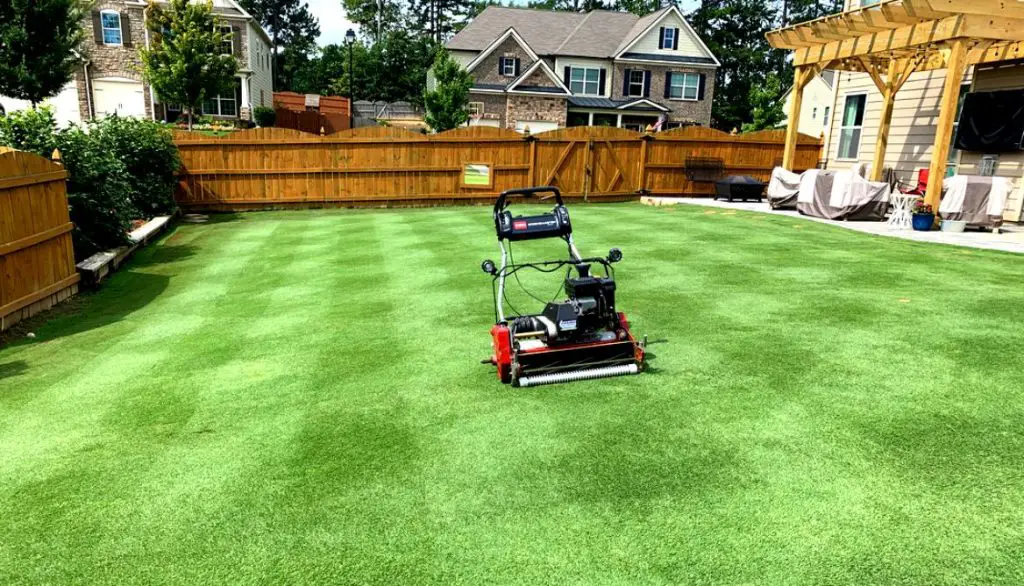
Let’s conduct a comparative study between Kentucky bluegrass and Bermuda grass.
- Bermuda grass offers a bristly texture while Kentucky consists of grass blades that provide a soft feel.
- Bermuda is extremely drought tolerant while the same cannot be said for Kentucky.
- Kentucky bluegrass can stand tall in shade easily.
- Bluegrass gives you the option to select from the number of species but, this isn’t the case with the second one as Bermuda gives you fewer options.
- Kentucky bluegrass has a finer texture.
- Bermuda grass is a hassle-free grass.
Differences Between Kentucky Bluegrass vs Bermuda
Parameters | Bermuda Grass | Kentucky Bluegrass |
Season | Warm-season grass | Cool season grass |
Water Needs | Needs frequent watering | It requires average moisture |
Drought Tolerance | Higher drought tolerance | Decreased drought tolerant |
Winter Season | It becomes dormant | Great during the winter season |
Feel | Sharper Feel | Pleasant Feel |
What is Bermuda grass?
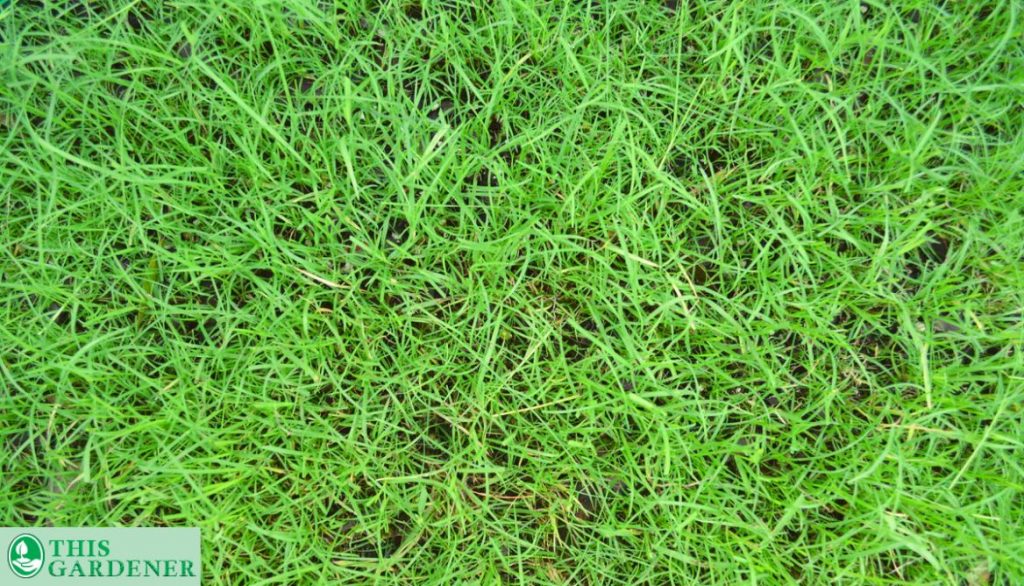
Bermuda, warm-season grass, is mostly found in southeastern areas. With its low water needs, the grass possesses enhanced drought tolerance as lawn grass.
The best thing about Bermuda grass is that it grows even if it is not getting full sunlight. Its growth is slowed down with lower sunlight but still keeps growing.
Identifying Bermuda grass
Upon closer inspection, Bermuda grass shows coarse texture grass leaves have a strong green color. Climatically, it is a grass species that live ideally in warmer climates.
Gold courses are the ideal location for this grass type. Through its wide leaves and coarse texture, it can be easily identified.
What is Kentucky bluegrass?
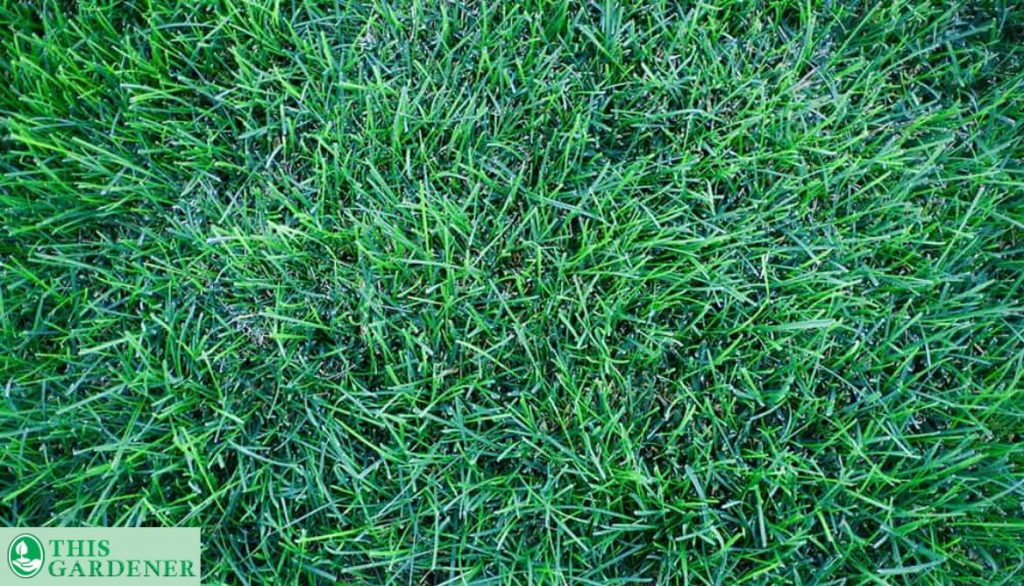
Kentucky bluegrass gives a soft feeling to the skin. It grows ideally in full sunlight and requires less quantity of water for growth.
Kentucky bluegrass lawns may be commonly found due to their soft nature and their appearance even during the fall season. Famous species are namely Perennial Ryegrass and Tall Fescue.
Identifying features
Kentucky bluegrass can be spotted from afar due to its strong green color. It gives off more of a soft feel and thus is best suited for home lawns. Notably, the soft/smooth feel of the leaves makes bluegrass easier to spot.
Comparing Kentucky bluegrass vs Bermuda
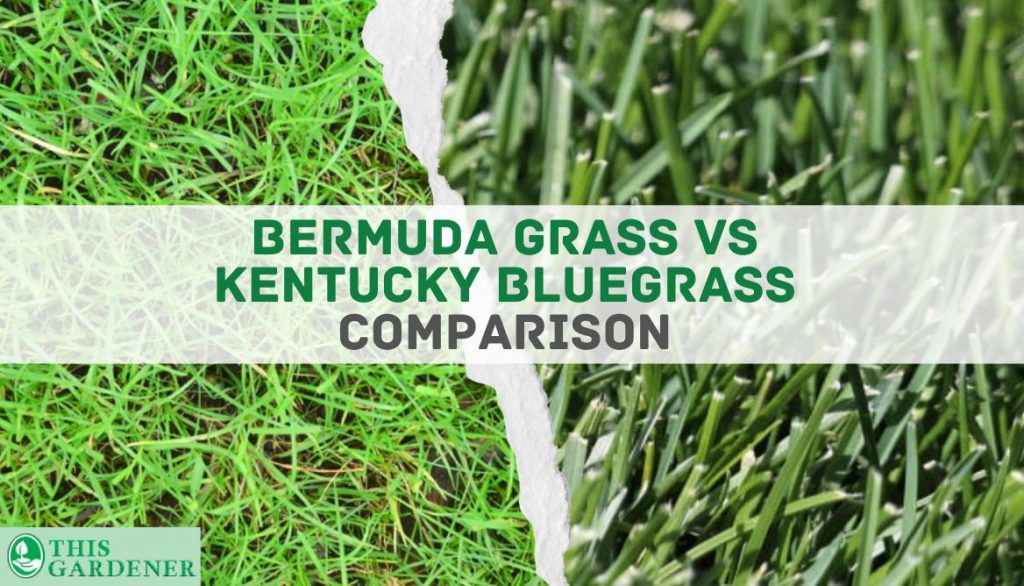
It is difficult to choose either as both of them have their benefits and drawbacks. We will compare all of the different aspects of these grasses so choosing a winner can become easier.
Appearance
Kentucky Bluegrass is a very distinct dark green shade and the leaves are very soft textured. This grass has a soft touch feel to it as they are rounded at the ends.
Bermuda grass also has a dark green color but other than that, they can’t be any more different. The blades have a medium width to them and also have sheath hairs. You can also spot colons in the clumps. These colons clump all of the grass together to establish a durable lawn carpet.
Weeds, growth, and sod formation (Kentucky bluegrass seed vs Bermuda)
You can expect bluegrass to reach a length of about 18-24 inches tall. It is spread by rhizomes and establishes a dense sod. Due to a deep root system, it stops at weeds in their tracks.
Bermuda grows at a rapid rate. It spreads by rhizomes and stolons. Bermuda with its durable root system doesn’t allow any weed to nourish.
Best Uses
Picking up among these, bermudagrass & the Kentucky Bluegrass depend upon different factors. The soft textured leaves of the bluegrass, make it excellent for home lawns. Due to the soft feel, it will provide an elegant look to the lawn.
Being a cool-season grass, it can handle below-the-bar temperatures.
Bermuda is more suited to areas with high traffic. It is rough grass and can handle all of the harsh treatment.
Southern lawns can benefit a lot from Bermuda grass. It also does well against high summer heat.
Soil Types and pH Needs
The best growth condition for these grasses is based on two things that are well drained and rich soil.
The preferable pH level is ” 6 to 7” for both of them. The Kentucky bluegrass and Bermuda grow well under this pH level.
Kentucky bluegrass has a slight advantage as it handles wet soil much better. On the other hand, sandy soil suits Bermuda grass is good with sandy soil.
Water Needs
The watering routine for both types of grass is very much similar. A water level of about 1.5″ per week is enough to sustain healthy turf.
Kentucky Bluegrass can survive with a bit less water at 1″ whereas you need at least 1.25″ min for the Bermuda lawn.
Fertilizer requirements
For Bermuda, the best fertilizer is the one with high nitrogen, no phosphorus, and a bit of potassium.
Slow-release fertilizers having the formula (3-1-2) are best for Kentucky bluegrass.
Sun, Shade, and Temperature Requirements
Kentucky Bluegrass requires hot weather and the full shinny sun. It grows really well if it only gets a couple of hours of full sun. But a lot of shade is really bad for it as it can get thin and eventually die due to insufficient sunlight. If there is a significant fall in the temperate, say below 32 Fahrenheit then it will greatly damage a Kentucky bluegrass lawn.
These two can adjust to the same temperature well but the thing is, Bermuda and shade don’t mingle well. Even a little bit of shade can make it thinner. You can mix Bermuda with Kentucky bluegrass to make it more resistant.
You will start to see brown spots if it doesn’t get enough sunlight. A freezing temperature also damages Bermuda, the same as bluegrass.
Durability
Bluegrass due to its finer texture isn’t as durable as Bermuda. But it doesn’t mean that it isn’t durable at all. It performs really well in clay soils and damp conditions. Another highlight of bluegrass is its quick healing ability.
Bermuda grass is really durable. It stands tall when it comes to high traffic. That is why it is used in most southern golf courses. You can mix Bermuda with other grasses to further increase its durability and tolerance. Fine fescue can be mixed with Bermuda to provide it with an elegant look and increase durability.
Common Pests and Diseases
Bluegrass falls prey to many diseases. Also, it is like a walking pest magnet that pulls in many types of critters such as grubs, thrips, and webworms.
Variables such as drainage and airflow can reduce the occurrence of diseases like powdery mildew. But it makes up with other perks it has hidden!
Bermuda isn’t also safe from insects! Animals that dig are a bigger nuisance because the recovery rate is low. Else, the turf grass is excellent in all other aspects!
Mowing Needs
You can easily mow down bluegrass to 1″ without doing any damage. However, 2″ to 3″ is still fine. Mowing in early spring or late spring is best as it grows best in cool weather.
Mowing the length of Bermuda is a bit trickier and the sweet spot is somewhere around 2″. Its growing season is in the summer months. Trimming it during the summer season frequently will boost its growth rate.
Cost of Maintenance
The cost of maintenance of bluegrass vs Bermuda grass is really similar. Both need a lot of maintenance so the cost is the same for both of them. You will need to take care of them and protect them from any insects and diseases. Regular watering is a must.
Bermuda vs. St Kentucky bluegrass grass: Which Option is Right for You?
There is no clear answer to which is better for you. It entirely depends upon the area in which you live and what are going to use it for. If you’re looking for good looking & elegant lawn then Kentucky bluegrass is the obvious choice. But it is not good for high traffic and this is where Bermuda shines.
Both of the grasses are just average in winter months and will die down in cooler climates. So, both of them don’t have a high cold tolerance. Bluegrass is the more aggressive grower with a fast recovery time. The growing season for bluegrass is spring while it is summer for Bermuda.
Choosing the Best Option for Climate (Warm Season Grass vs Cold Season)
Bermuda is a warm-season grass whereas bluegrass like colder temperatures. However, both of them don’t do well in extreme temperatures.
Growing zones
Bluegrass grows best in cold regions and Bermuda in hot regions. So, therefore, you can choose the one that is more suited to your area.
Summary: It entirely depends upon the area in which you live.
Choosing the Best Option Based on Maintenance
Bermuda requires a bit more watering than bluegrass. But the difference is insignificant. All of the other maintenance requirements are more or less similar.
Summary: You can go with either one as both require high maintenance.
Choosing the Best Option Based on Susceptibility to Pests and Disease
Both types of grasses are susceptible to the same pests and diseases. Therefore, both of them are at an equal level.
Summary: You can go with either one.
Similarities between St Kentucky bluegrass vs Bermuda
Appearance
Kentucky Bluegrass and bermudagrass have rich green coloration on their leaves. So, differentiating them apart is kind of tricky.
Watering
The watering needs for bluegrass and Bermuda grass are similar.
Extreme Weather
Both Kentucky bluegrass and Bermuda do not grow well in extremely hot or cold weather conditions. The grass starts to become brown and patchy as it dies.
FAQ
Can you mix Kentucky bluegrass with Bermuda?
One word, Affirmative! These two can be mixed!
Can you overseed bluegrass with Bermuda?
Overseeding of Blue grass can be done while mixed with Bermuda. This can be done during fall or at the start of spring.
Will Bermuda grass choke out other grass?
Yes, its thickness does choke out all grasses and plants.
Is Bermuda grass soft to walk on?
Truth be told, this grass is not as soft as the Kentucky bluegrass, but you still can get one with a finer texture for that extra softness.
Will Bermuda grass choke out weeds?
Yes, it does choke out weeds. A thick Bermuda lawn is able to resist all weeds.
What is the best time of year to plant Bermuda grass seed?
Nothing can be a hurdle in its growth if it’s planted in the late spring season.
Why do they call Kentucky bluegrass?
In Central Kentucky, when the early settlers looked on Poa pratensis, it gave a purplish hue. In the sun, it looked blueish green, hence then the name bluegrass came into existence.
What is the best variety of Kentucky bluegrass?
Scotts Turf Builder Kentucky Bluegrass Mix is considered the best variety of this grass.
Should I Overseed with Kentucky bluegrass?
We don’t recommend doing it because it stays green during the cold season.
Will Kentucky bluegrass fill in bare spots?
If you have bare spots on your lawn then the grass will spread and cover it quickly.
Does Kentucky bluegrass turn brown in winter?
Yes, during very low temperatures in winter, it can lose its green color.
Conclusion
Concluding this green argument, we can deduce some insights that will prove to be pre-advantage for lawn owners. Firstly, Kentucky Bluegrass comes with numerous perks such as aesthetics, resistance, & comfort feeling.
Bermuda can be labeled as a tough nut that takes effort to crack! It is fit for places that experience high foot traffic which makes it the 1st choice on Golf courses.
Our analysis might have broadened your perspective a lot and we aim to assist further in the future! So, which turf have you finalized? Drop your winner in the comments section to enlighten us!
References
All You Need to Know About Bermudagrass (pennington.com)
The Best Fertilizer for Bermuda Grass of 2022 – Top Picks by Bob Vila
All You Need to Know About Kentucky Bluegrass (pennington.com)
Contrast Bermudagrass & Kentucky Bluegrass (gardenguides.com)
Bluemuda: A Marriage Between Kentucky Bluegrass and Bermudagrass (usga.org)
- How to Get Potatoes to Sprout Eyes: Detailed Growing Guide with 3 Options - July 31, 2023
- Weight of a Medium Potato: Revealed in Detailed Guide - July 29, 2023
- Maris Piper Potatoes: 9 Substitutes You Should Know About - July 27, 2023
Hello! I’m Jessica Zander, a garden coach and consultant based in the Boston area (zone 6b), offering virtual consultations across the country and Canada.
I’ve been passionate about gardening since the early 1990s, and in 2022, I launched You Can Do It Gardening to empower individuals to feel more confident in their gardening endeavors.
Following a 30-year career in nonprofit finance and operations, I transitioned out of that field in mid-June of 2023 due to the growing demand for coaching services. Interestingly, my years of presenting financial statements to boards and finance committees proved to be valuable experience for teaching people about gardening! I enjoy sharing skills, providing guidance and suggestions, and collaborating efficiently with clients to make significant improvements to their outdoor spaces, both small and large. I also regularly teach at the Arlington Continuing Education and Cambridge Adult Education.
My approach is direct and practical, akin to Mary Poppins, but tailored to your garden. Clients find satisfaction in saving money and taking pride in their own gardening achievements.

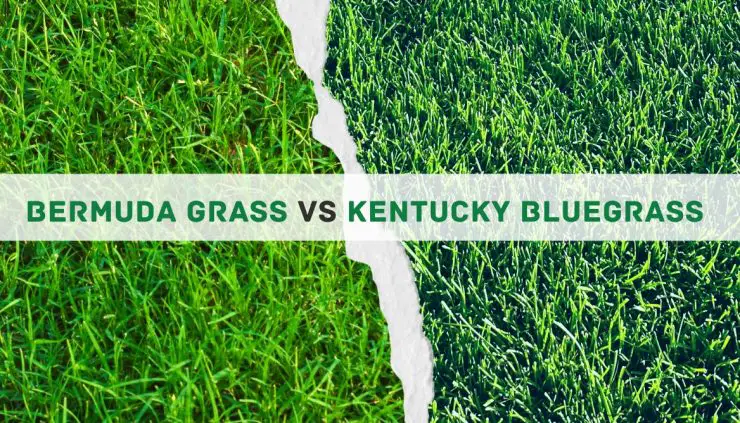
Add comment